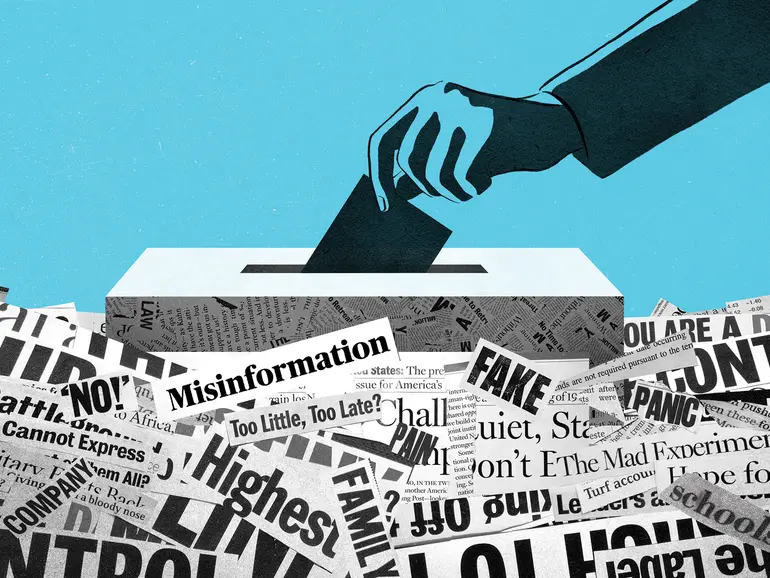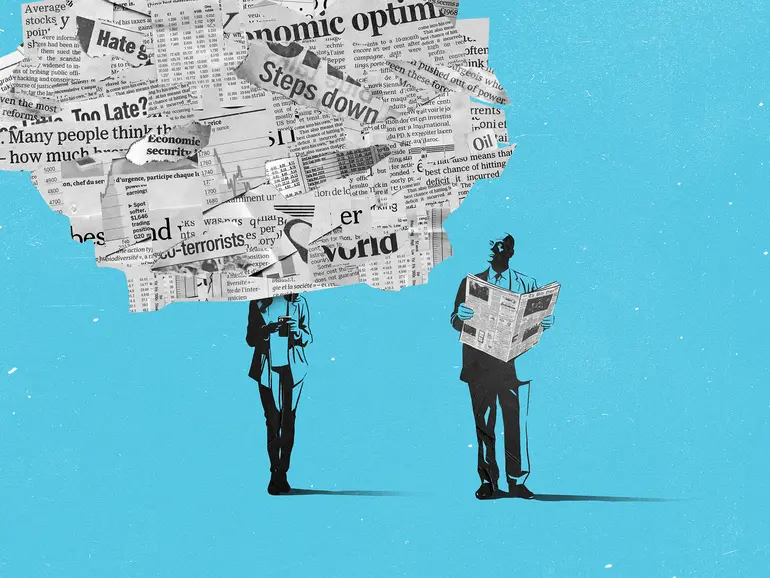In election cycles, voters tend to believe news that confirms their biases
When individuals assess the truthfulness of political news during an election period, their beliefs become significantly more partisan, research finds.

Faculty
Charles Angelucci is the Class of 1957 Career Development Assistant Professor and an Assistant Professor of Applied Economics at the MIT Sloan School of Management.
He was an Assistant Professor of Economics at Columbia Business School from 2015 to 2020, where he taught an MBA elective course on Competitive Strategy. Charles conducts research in Organizational Economics and Political Economy, with a particular interest in governance issues and news media markets.
Charles Angelucci completed his PhD at the Toulouse School of Economics.
Angelucci, Charles, Simone Meraglia, and Nico Voigtländer (R&R at The Review of Economic Studies), MIT Sloan Working Paper 6950-23. Cambridge, MA: MIT Sloan School of Management, March 2025.
Angelucci, Charles and Roi Orzach, MIT Sloan Working Paper 6951-23. Cambridge, MA: MIT Sloan School of Management, February 2025. Online Appendix.
Angelucci, Charles and Roi Orzach, MIT Sloan Working Paper 6952-23. Cambridge, MA: MIT Sloan School of Management, November 2024. SSRN.
Angelucci, Charles, Michel Gutmann, and Andrea Prat, MIT Sloan Working Paper 7013-24. Cambridge, MA: MIT Sloan School of Management, July 2024.
Angelucci, Charles, Julia Cagé, and Michael Sinkinson. American Economic Journal: Microeconomics Vol. 16, No. 2 (2024): 62-102. Online Appendix. SSRN Preprint. Vox. The Hill.
Angelucci, Charles and Andrea Prat. American Economic Review Vol. 114, No. 4 (2024): 887-925. Online Appendix. Slow Boring. The Hill. SSRN.

When individuals assess the truthfulness of political news during an election period, their beliefs become significantly more partisan, research finds.

Journalistic truth isn’t dead, a new study has found, but socioeconomic factors affect people’s ability to identify real news.
A bigger threat to democracy may be lack of access to reliable news sources.
"We don’t know why young people are not as well informed as older people, but age is the single most important predictor of knowledge."
...an increase in straight ticket voting, in turn, translates into more polarized voters, said Charles Angelucci, one of the study's authors.
“We found large variations and inequalities in voters' awareness of news...across age, gender, partisan preference, and socioeconomic status."